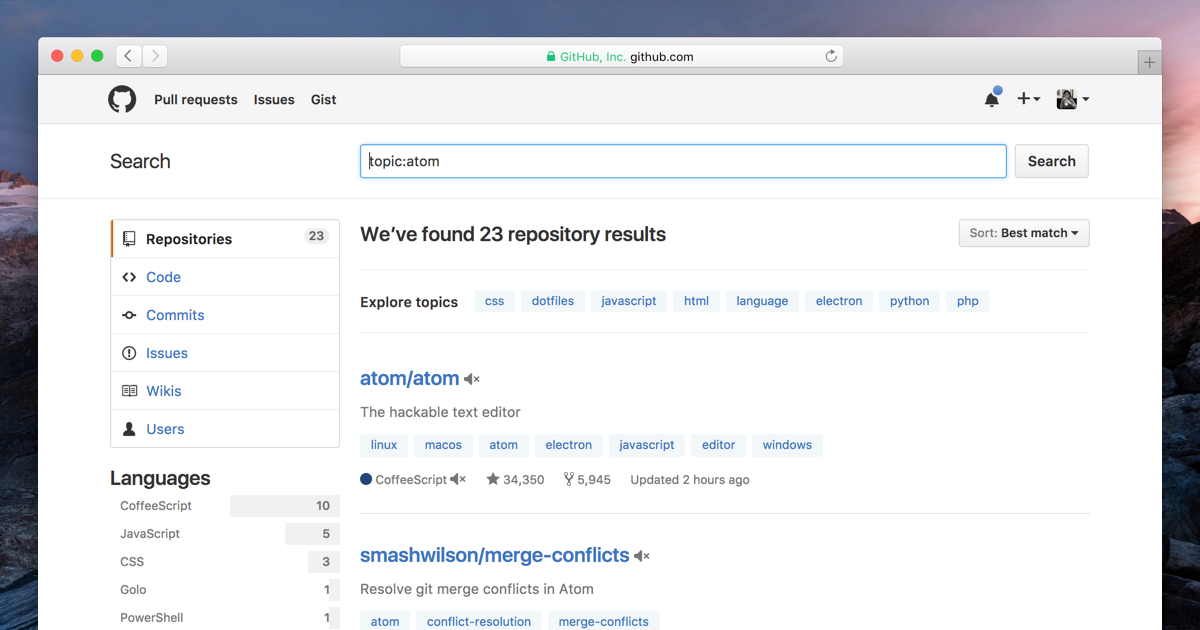
GitHub is giving administrators and developers new improvements for efficiency and flexibility in the latest release of Enterprise 2.10. GitHub Enterprise is an on-premises version of GitHub that provides businesses with a streamlined workflow, code collaboration, compliance capabilities, deployment and centralized permissions.
The latest release features the new GitHub GraphQL API, which allows developers to create tools with greater access to data, request data, and get updates in real-time. The release also makes it easier to find and organize repositories with topics, improves project boards, and refines the review process.
The 2.10 version allows repository admins to manually tag their repositories, add relevant data, and group repositories by languages, project or teams to make them easier to organize, maintain and find.
The project boards also focuses on organization with new improvements for tracking and review. “When projects get complex with multiple contributors and phases, it can be difficult to keep track of what’s getting done and who’s doing it. Now teams can see a rich history of all activity (and the teammate behind each action) in one place with project board history,” Avinash Sridhar, GitHub staffer, wrote in a blog post. In addition, admins can disable project boards if they aren’t in use, and restore them at any time.
For the review process, GitHub added review filters to pull together pull requests still in review, unreviewed pull requests, and approved pull requests. Admins can now also specify who has permission to dismiss reviews as well as leave, manage, request and limit reviews.
Other updates include: improvements to Git LFS 2.0, new API rate limiting options, ability to trace changes, and TLS protocol options.






